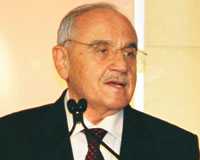In a move displaying its desire to deepen bilateral relations with China, Turkey has decided to open a new consulate general in this giant Asian nation, with plans to open several more consulates general in the near future. In addition, Foreign Minister Ahmet Davutoğlu pointed out on Tuesday that developing ties between the two countries should be assessed through the concept of “normalization of history.”

Wrapping up his six-day tour of Chinese cities on Tuesday with his last stop being the capital city of Beijing, Foreign Minister Davutoğlu told reporters that the new consulate general will be opened in Guangzhou, southern China’s largest city. After having talks with Chinese Vice President Xi Jinping on Monday, Davutoğlu met with his Chinese counterpart, Yang Jiechi, on Tuesday.
In addition to its embassy in Beijing, Turkey already has two consulates general in China — one in Shanghai and the other in Hong Kong.
Davutoğlu’s visit came weeks after a landmark visit to Turkey by Chinese Premier Wen Jiabao. During last month’s visit, the two countries located on the opposite edges of Asia took a landmark step in developing their bilateral relationship by defining it as a “strategic partnership.”
Accordingly, several concrete steps will be taken to strengthen bilateral relations, including intensifying preparations for building a Turkish industrial zone in the Xinjiang Uighur Autonomous Region, populated by ethnic Turkic Muslim Uighurs, and mutually increasing the number of flights and new destinations. While 2011 will be declared “China Year in Turkey,” the next year will be celebrated as “Turkey Year in China.”
During Prime Minister Recep Tayyip Erdoğan’s planned visit to China, which is expected to take place in the summer, Chinese and Turkish officials will institutionalize the declared strategic partnership through new bilateral mechanisms. Chinese President Hu Jintao, meanwhile, is expected to visit Turkey next year on the occasion of the 40th anniversary of the establishment of bilateral relations between Ankara and Beijing. Turkey recognized the People’s Republic of China, founded in 1949, in 1971.
Both Wen’s and Davutoğlu’s official visits and the two countries’ will for materializing a strategic partnership have been used by some commentators as proof of a so-called axis shift from the West to the East in Turkish foreign policy.
Yet, Davutoğlu, speaking to reporters ahead of his departure for Turkey, firmly reiterated that Ankara’s developing relations with these global powers are not emerging at the expense of neglecting its cooperation with the West, and these relations should not be considered as an alternative to existing relations with Western countries.
Turkey’s increasing contacts with China should be assessed within the general strategy framework in which Turkey’s foreign policy is shaped, Davutoğlu went on to say. The minister, who frequently uses metaphors to explain the government’s understanding of foreign policy, this time likened Turkish foreign policy to “an Asian rug.”
“Every pattern and every color presents a harmony,” he said, reiterating that the basis of Turkey’s foreign policy is the normalization of history. With his conception of the “normalization” of history, Davutoğlu underlines the importance of eliminating Cold War and colonial abnormalities.
“In a sense, a new Turkey-China cooperation paradigm is emerging via getting out of the abnormal situation of the period following the Cold War,” he said.
Turkey, which considers China to be like “a continent,” plans to open “a great number of representative” missions in the country. The opening of a representative mission in Urumqi, the capital of the Xinjiang Uighur Autonomous Region, was not on the agenda of talks between Davutoğlu and Chinese officials. Yet, sources mentioned opening such offices “in every part of the country over time,” signaling that such an option was not out of the question.
03 November 2010, Wednesday
SERVET YANATMA/OSMAN EROL BEIJING





